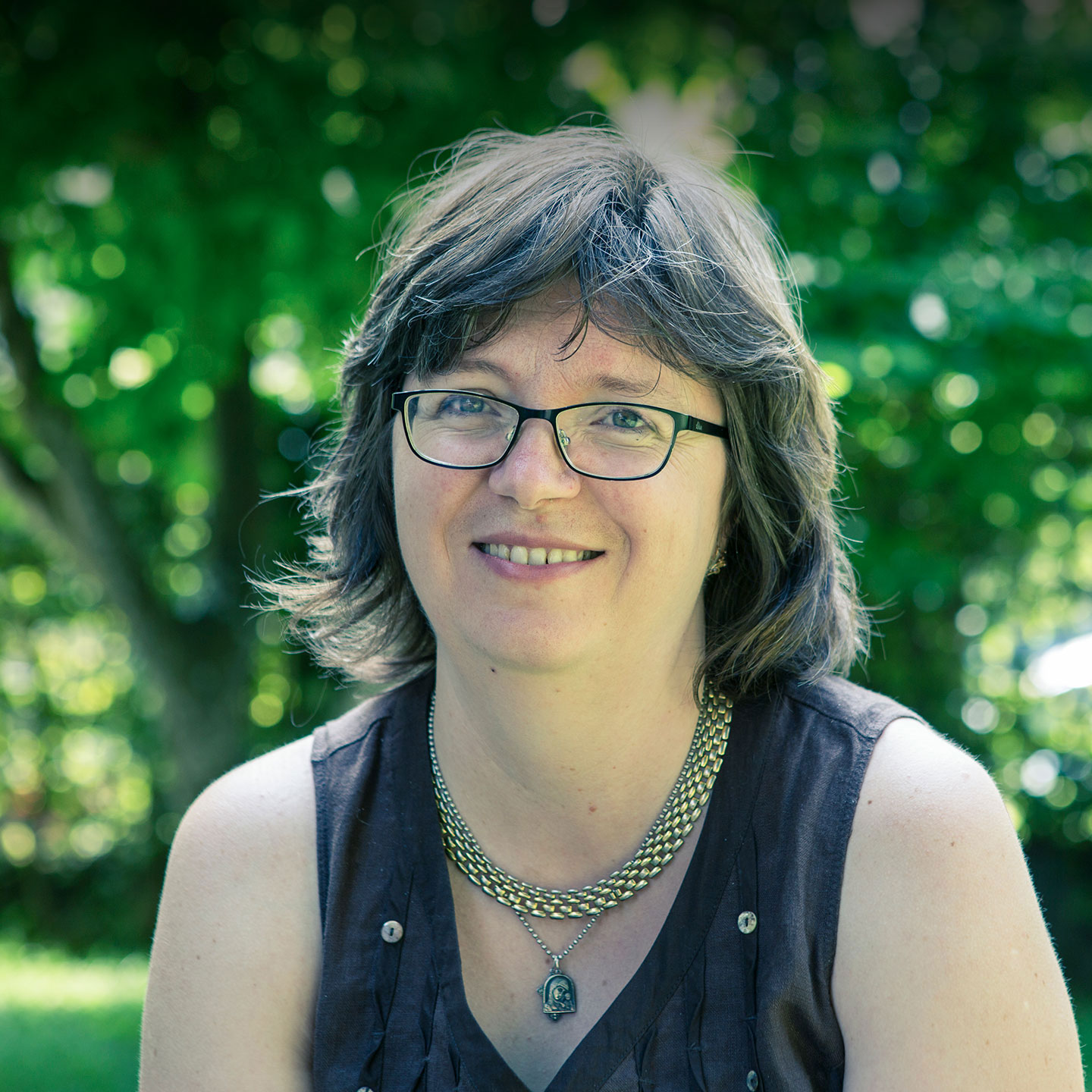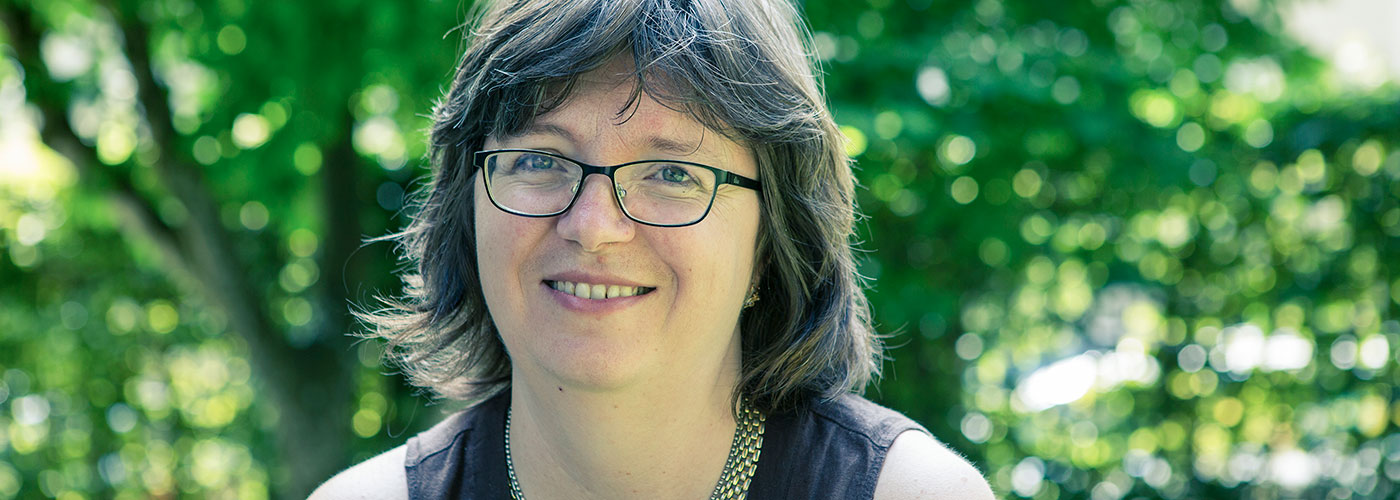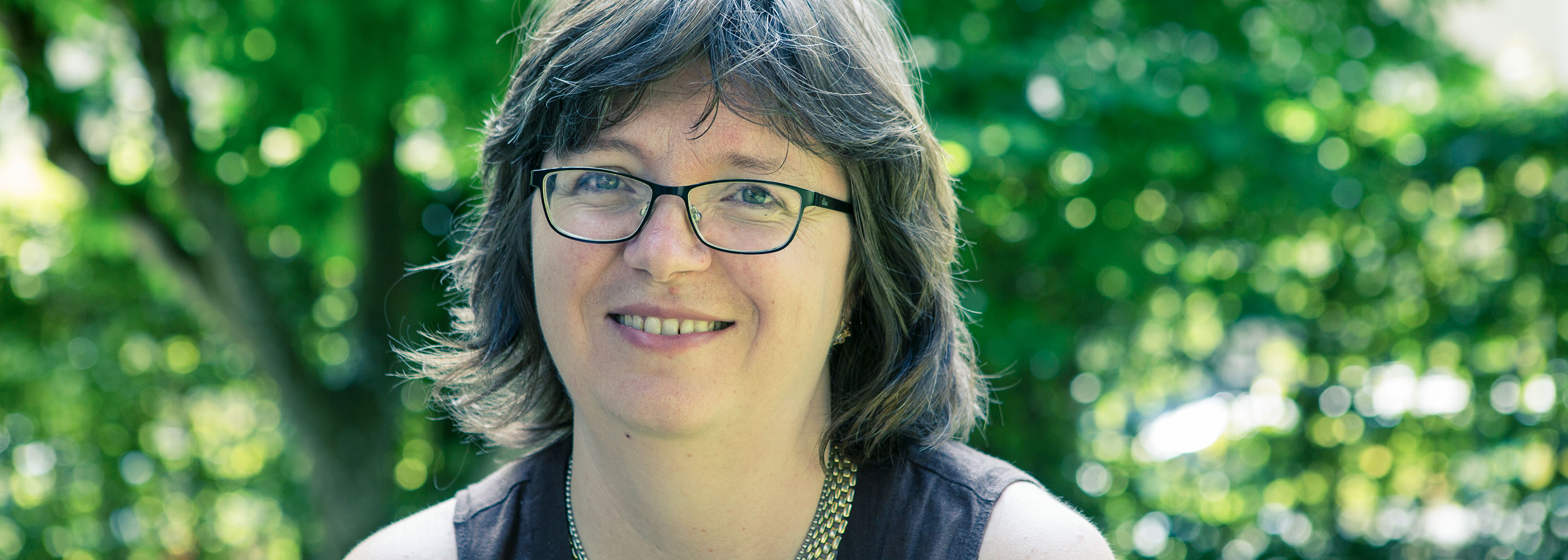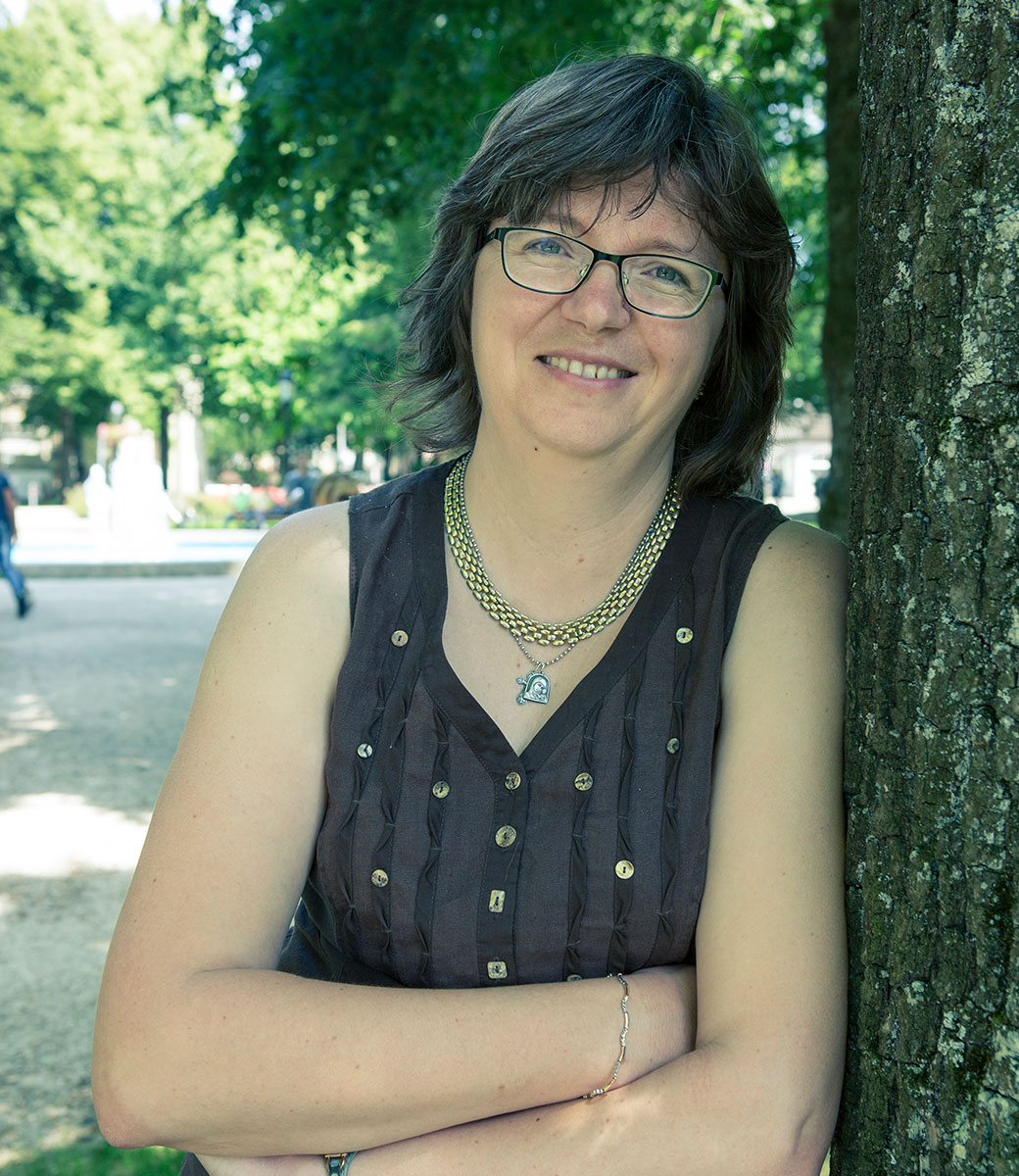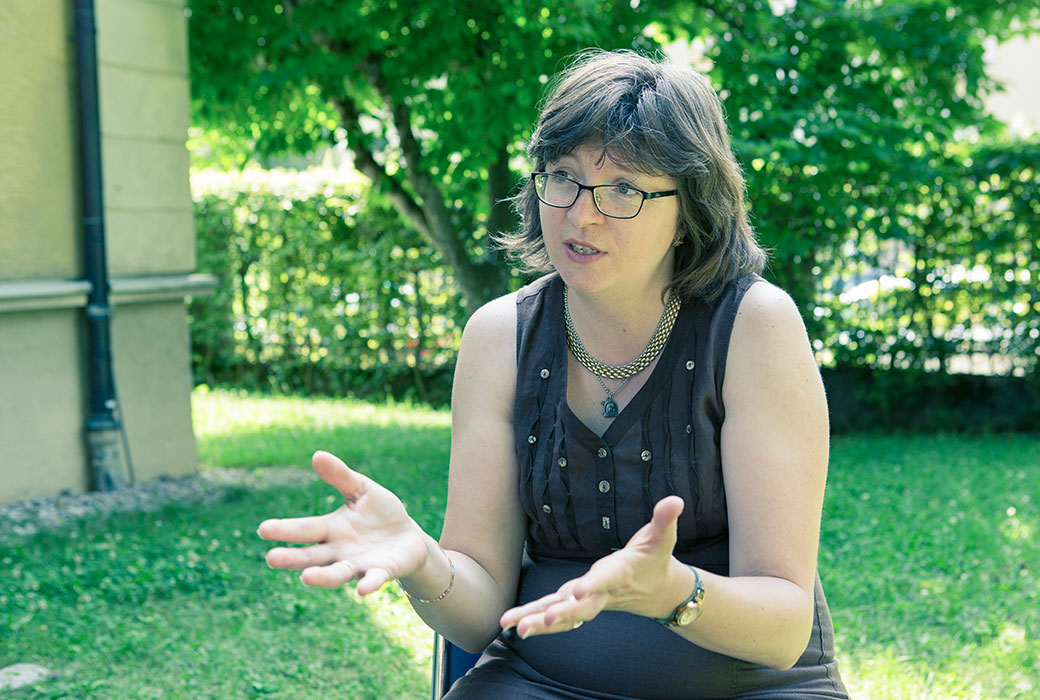
Main content
When volunteers become friends
Natalia Wolf heads the “Volunteering to help refugees” (Ehrenamt in der Flüchtlingshilfe) project at the Workers’ Welfare Association (AWO) in the district of Traunstein. She supports and advises volunteers with their work in 33 municipalities.
The interview was conducted in 2016.
She is at hand when volunteers have questions, need advice or require support getting new aid projects off the ground: Natalia Wolf, head of the “Volunteering to help refugees” project at the Workers’ Welfare Association (AWO) in the district of Traunstein. Funding as part of the “Civil engagement for refugees” project at the AWO is provided by the Federal Government Commissioner for Migration, Refugees and Integration. She has looked after 33 municipalities on a part-time half-day basis since autumn 2015 – every one of which has their own volunteer group numbering from eight to well over 100 people. In the time she has left, she teaches German to classes of refugees at the vocational college and also volunteers herself.
Taking action from the heart
The fact is that thousands of Bavarian citizens volunteered as part of the enormous influx of asylum seekers in 2015. This rapid assistance and civic engagement was and is overwhelming. “People provided humanitarian assistance with the deepest of conviction. Many of them are totally exhausted”, says Natalia Wolf. In the “A cordial welcome” (Herzlich Ankommen) project, the AWO wants to support volunteers in their work and provide them with guidance. In addition, Natalia Wolf wants to make the process of arriving in Bavaria easier for refugees. Her own migrant background has provided her with good instincts when it comes to understanding what people need the most in a strange place – aside from a safe roof over their heads.
Natalia Wolf was born in Russia and met her Austrian husband in 1993 during a trip to Germany as part of an exchange programme organised by the German Educational Exchange Service in Munich. She has lived in Traunstein since 1998 and her two children are 15 and 19 years old. “You arrive in a strange land and do not have a clue at first. Information and contact with local people were the most important things for me when I was really new here”, she remembers. And after 21 years in Bavaria, she believes: “I am now fully integrated. I have adapted to many aspects and appreciate the life here a lot. At the same time, I still feel connected to my homeland and have retained some values.”
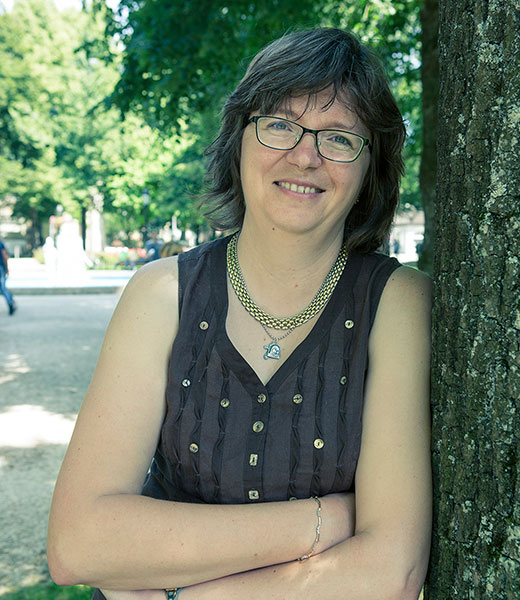
“I find it nice when friendships develop between volunteers and refugees. But both sides need to ensure that this happens on an equal footing.”
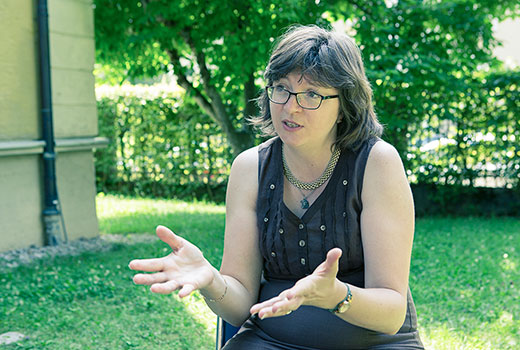
Finding a balance between closeness and distance
“Volunteers often find it hard to find the correct balance between closeness and distance. There is often very close contact between refugees and locals and the boundaries between volunteering and friendship are fluid”, according to Wolf. This often creates problems for the volunteers. Saying no is difficult when a trusted friend is asking for help. “The volunteer’s own life should not be neglected”, emphasises Wolf. Those who no longer have time for their own families, lose contact with friends and acquaintances and do not allow themselves a short breather will not be able to stay the course. Every volunteer should retain a little professional distance so as not to run out of energy. A little distance protects volunteers, not least from the disappointments that can invariably occur. Volunteers can become hugely frustrated when, for example, well-intentioned advice is ignored or an asylum seeker rejects a place on a training course or apprenticeship because he or she has other plans. “Volunteers almost develop a sense of guardianship for ‘their’ refugee. Yet they sometimes overlook the fact that the refugee is no longer a child, but rather an adult person with a different cultural background and different upbringing who has experienced difficult times in the past”, explains Natalia Wolf.
Friendships are welcome, but on an equal footing
“I find it nice when friendships develop between volunteers and refugees. But both sides need to ensure that this happens on an equal footing.” She believes that it often helps to consider your own motivation for volunteering and to put yourself in the position of the refugee. Why do I want to help? What image do I have of refugees? What would I do in their position? It is hugely important for volunteers to find answers to these questions. “Some asylum seekers are provided with too much support, others are not good at accepting help or want to make their own decisions”, says Wolf. Volunteers have to accept this. The principle of “helping people to help themselves” is especially important if you want to carry on this work over the long term. And the importance of protecting yourself should also not be neglected. The key concept is maintaining closeness and distance.
It is impossible without volunteers
The first major efforts to receive and integrate refugees are now behind us – Wolf is convinced of this. “We would not have achieved it without the many, many volunteers. It is about time that we said thank you.” Thank you to all the volunteers who were prepared to provide quick and unbureaucratic assistance at a time when every pair of hands was important. Thank you for the many donations and gifts, as well as the thousands of hours of free time they have sacrificed. Thank you for all of those large and small deeds. Thank you for every smile and every friendly word. “The worst is now behind us”, believes Natalia Wolf. “Calmer times lie ahead, but there are also major challenges in other areas. The integration of numerous refugees has only just begun. Sustainable voluntary engagement to help refugees is thus enormously important.”

